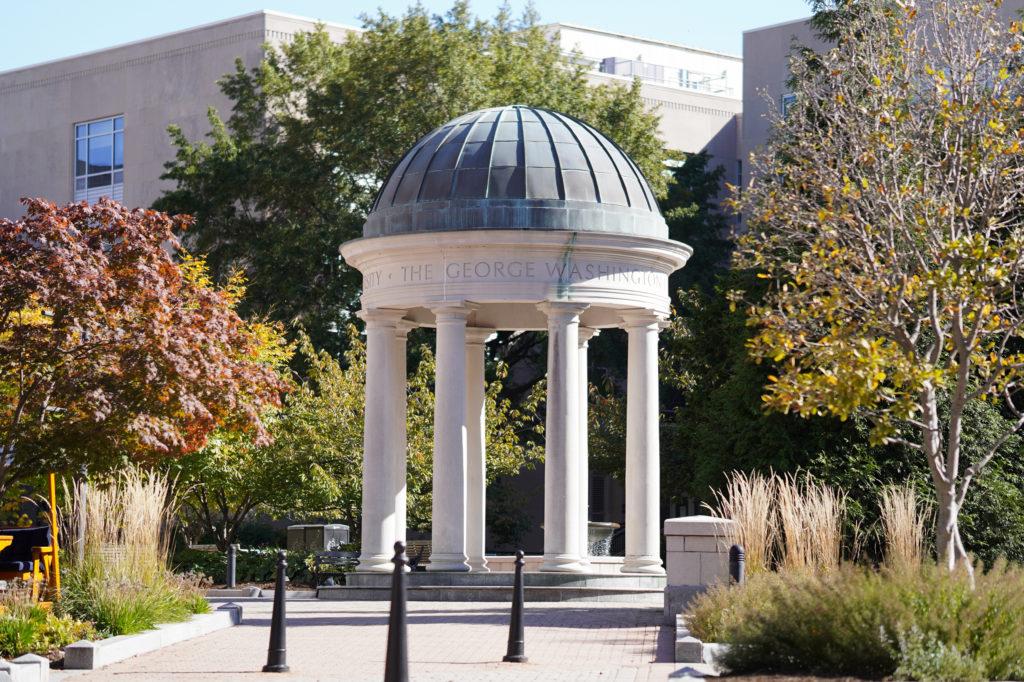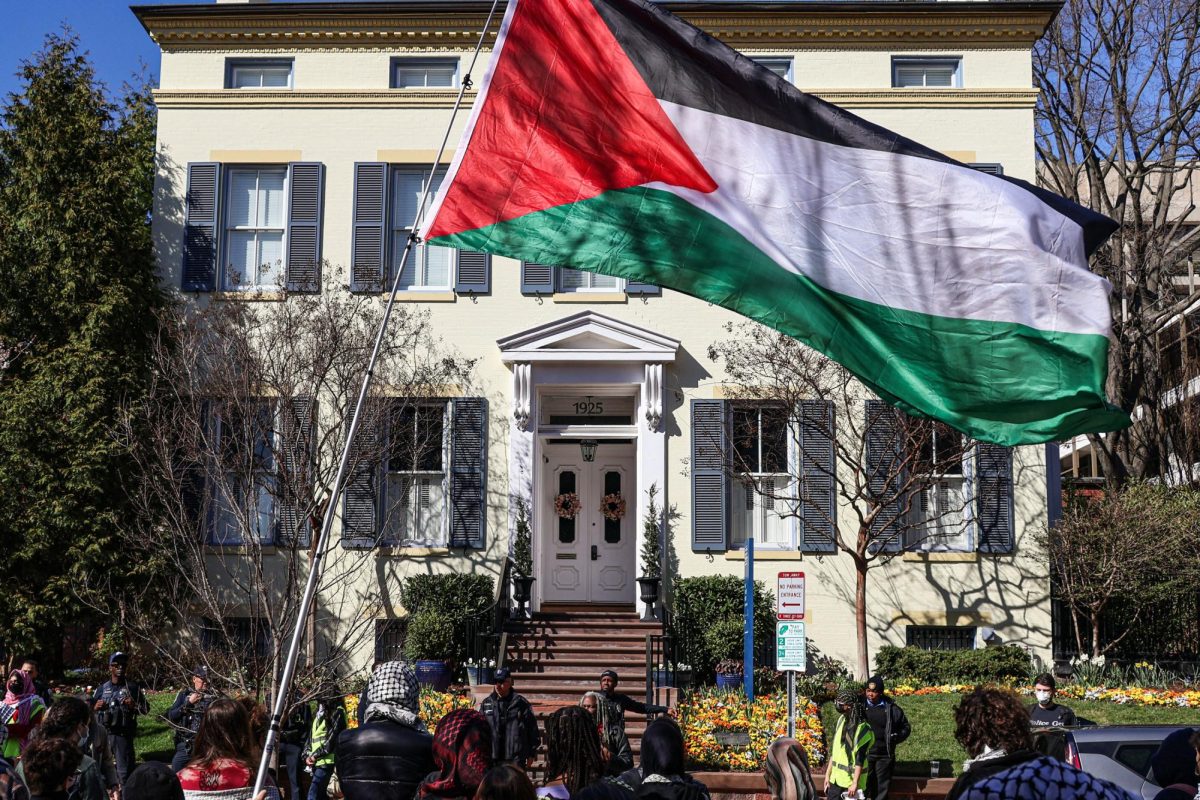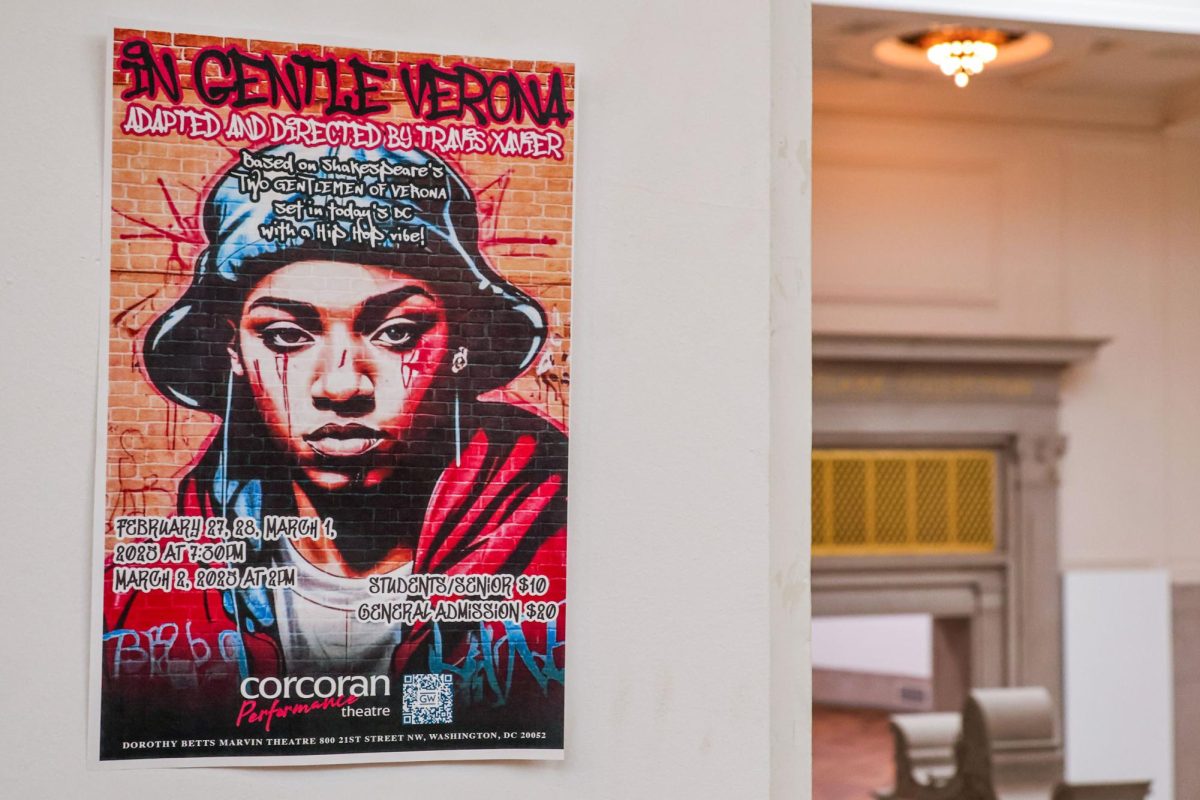After working toward her bachelor’s for about nine years, senior Stephanie Ratajczak was looking forward to celebrating Commencement as the first in her family to graduate from college.
Then, GW announced that for the second year straight, students will likely not graduate on the National Mall, and the rest of the academic year will be held online.
Ratajczak said her focus in classes has been “completely shot” since the University moved online in March and has struggled to balance her time between two in-person jobs and classes. She said she’s set up a study corner at her home in Hyattsville, Maryland, and is thankful for her professors who have granted her extensions when she is overwhelmed about completing assignments.
“And it’s not even general laziness or distractions by the things in my house,” Ratajczak said. “I sit down in my study corner, and I’m ready to go. And I open research articles to look up sources for referring to while writing. When I read, my eyes go over the same sentences five, six, seven times, and none of the words stick in my brain.”
“Luckily, I saw one professor because we had a happy hour. Other than that, I’ll never see any of them again, that I’ve been working with for three, four years and even friends.“
Ratajczak is one of a dozen students who said while they understand officials’ decision to continue virtual instruction this spring, they’re worried about feeling burnout after months of learning away from campus. Students said they are bracing for the next online semester by taking easier classes and moving out of their homes to maintain focus.
“For safety’s sake, I’m glad we’re doing online classes, but my morale is shot,” Ratejczak said.
Senior Kayla Larmore, a speech, language and hearing sciences major, said receiving the news that her final semester of college would be online in the same email as learning about Commencement made her feel like officials “dismissed” the significance of graduation for students.
“I think it was also premature to say [Commencement is] not possible after they also promised that the class from last year would graduate with us if they wanted to,” Larmore said. “You’re letting down two years of students that have also paid so much money and committed so much time to then getting dismissed in a little chunk of an email.”
Students launched a petition earlier this month calling on officials to reconsider holding an in-person Commencement on the National Mall, which has garnered more than 450 signatures.
Larmore said she wishes officials would allow seniors to take upper-level classes, like a senior seminar or capstone, in person to make the most out of the demanding class.
She said it’s been hard to find motivation this semester to complete her classes and graduate school applications knowing she lacks connections and communication with peers and professors while studying online. She said it was disappointing to know she may not see professors she’s worked closely with throughout her college career again.
“Luckily, I saw one professor because we had a happy hour,” Larmore said. “Other than that, I’ll never see any of them again, that I’ve been working with for three, four years and even friends. All of it together, it does not feel like it’s the way to end this education even going into graduate school.”
Freshman Brooke Stallman, a biological anthropology major, said she’s been looking forward to attending college for years now, but her mental health has tanked since she started classes at home in Phoenix. She said she was confused why administrators had not made any accommodations for freshmen and seniors to take classes in person.
Administrators had considered gradually phasing a spring in-person reopening that would prioritize freshmen and seniors.
Stallman said she plans to apply for a spring housing arrangement because she has struggled to focus and find friends during the remote semester. She said if she is not accepted, she will have to continue taking classes in Arizona because she can’t afford D.C. housing.
“I’ll have bursts of productivity,” Stallman said. “I won’t really want to do anything for a day or so because the previous day was just so overwhelming. But then I’ll sit down and work on my computer for eight hours.”
Sophomore Katelyn Monostori said she wasn’t expecting the University’s spring announcement so early into the fall but is now considering taking a leave of absence next semester to focus on her mental health and possible internships. She said she’s had difficulty remaining optimistic and productive in classes, which have hurt her ability to retain information in class.
Monostori, a philosophy major, said the majority of her classes are discussion- and paper-based, which has required her to spend more time studying to understand new concepts. She said having classroom discussions over Zoom has made it harder to interact naturally and would prefer to wait to experience them in person.
“It’s very easy to fall behind because teachers are being flexible with due dates, which I really appreciate,” Monostori said. “And it’s been a big help. But then it’s also very easy to say, ‘Oh I’ll watch this week’s lecture next week,’ but next week also has a lecture.”
Miranda Nazzaro contributed reporting.








